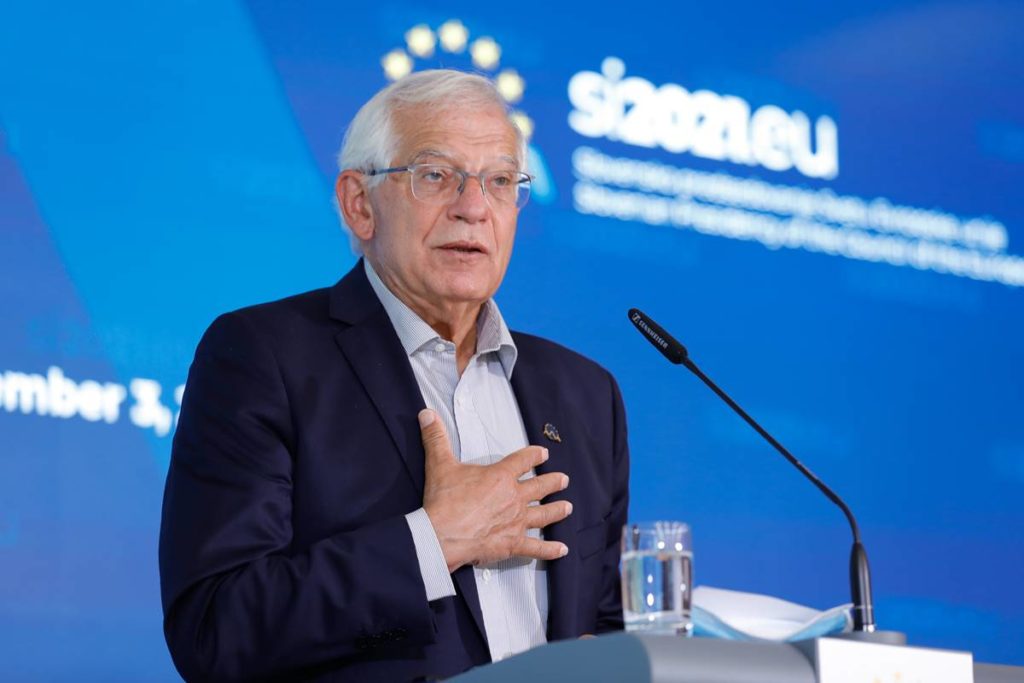The EU’s top diplomat Josep Borrell has admitted that the EU has spent €35 billion on Russian energy and only €1 billion on aid for Ukraine, since the beginning of the invasion on February 24.
While €1 billion may seem like a lot, it is the amount the EU is paying to Vladimir Putin every day for the energy he provides the continent with, said Borrell.
“Since the start of the war, we’ve given him €35 billion, compared to the €1 billion we’ve given Ukraine to arm itself. Zelenskyy needs us to tell him less often that he is a hero and give him more weapons to fight,” Borrell told the European Parliament on Wednesday.
“That’s what Ukrainians expect from us and that’s what we’re doing, and we must do it faster - putting pressure on Russia and arming Ukraine.”
EU foreign policy chief Josep Borrell says the EU has given €35bn to Vladimir Putin in energy payments since the start of the war, compared to €1bn given to Ukraine in arms and weapons.
— Jennifer Rankin (@JenniferMerode) April 6, 2022
Energy dependency
European importers pay €775 million for Russian oil and natural gas each day. Last year, the total amounted to over €99 million - money that has been credited with funding the Kremlin’s war machine.
Since Russia’s invasion of Ukraine, Europe’s dependency on Russian oil, gas and coal has been of growing concern, both because of the economic support to the country and the leverage it gives Putin.
There have been continuous calls for the end of dependency on Russian gas, particularly by Poland and the Baltic states, and Lithuania has been the first European country to close Russia’s gas tap entirely.
Related News
- Russian state media's hysteria: Ukrainian civilians are now 'Nazis' too
- Ukrainian protesters demand an embargo of Russian oil and gas in front of the European Council
- Belgium ready to deny Russian ships access to its ports
The EU has been pressing Norway in an attempt to shift its energy reliance from Russia to Scandinavia, while also aiming to accelerate the shift to renewable sources of energy.
These bottlenecks have caused a serious energy crisis in Europe. However, countries that are heavily reliant on gas from Russia, such as Germany, have expressed concern regarding moving away from the country’s energy sources, as it will cause energy prices to continue increasing, which might cause the support for Ukraine to falter.
Costing lives
Meanwhile, Ukrainian President Zelenskyy has asked Western countries to ban Russian oil imports, saying "Ukrainians are dying because such an embargo has not yet been put in place" in his daily video message.
He also addressed the recently announced sanctions, calling them "spectacular, but not enough". In addition, Zelenskyy is asking for a complete shutdown of Russian banks from the international payment system.
More sanctions
The fifth package of sanctions proposed by the European Commission on Tuesday in response to the horrific war crimes in Bucha include a ban on imports of Russian coal, representing around €4 billion, but fell short of proposing a ban on Russian gas imports.
“Today we put an end to coal, but that's a very small fraction of the total bill,” Borrell said. “Our independence, our energy autonomy, is contingent upon renewable energy and, for the first time, geopolitics and climate change shake hands in a common goal.”
These latest measures are currently under discussion by the 27 member states, who will have to approve them unanimously - which might prove a challenge, given Hungary’s close ties with Putin since the recent re-election of Viktor Orbán.

